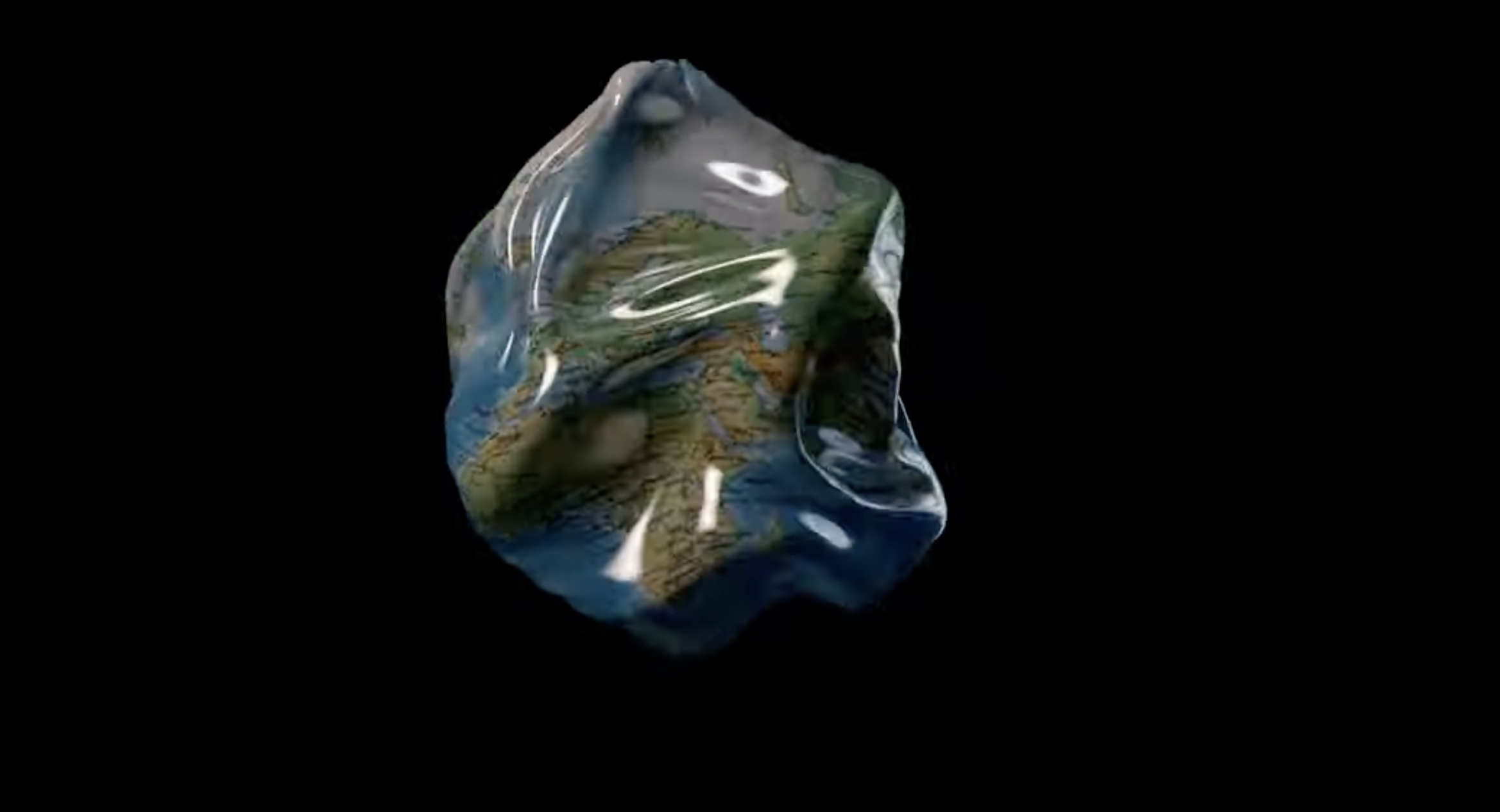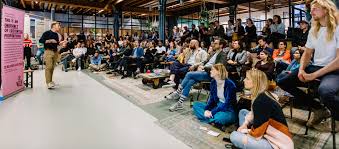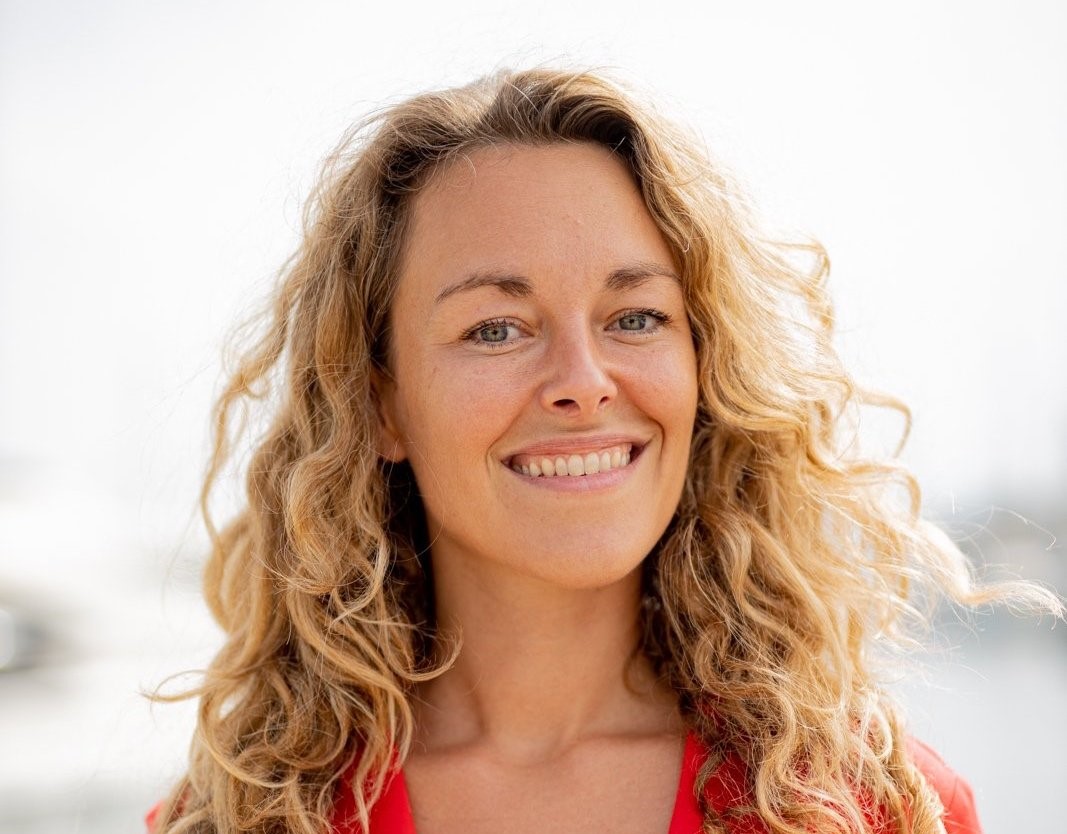The communications industry has sold consumerist lifestyles for decades through glossy ads and aspirational imagery. But now there is a growing movement to tell a new story. Can the creative industry be a force for good by directing its narrative power toward climate solutions? Zoë Red is the strategic partnership director at Creatives for Climate, a global nonprofit organisation working on climate justice. She thinks that there is a huge potential for the creative industry to utilize its power for climate solutions. “The creative industry can be a force for good by directing narrative power towards promoting sustainability and social justice,” she tells me in a Zoom call from her office in Amsterdam where she is working on the initiative’s next events.
Creatives for Climate is a global grassroots movement, a network of more than 2,500 creative professionals dedicated to using their skills and platforms to promote sustainability and social justice. The organisation began in 2019 when Lucy Sturmer organised the first Creatives for Climate Summit, inspired by a call from Extinction Rebellion for the industry to declare a climate emergency. Over 200 professionals attended the sold-out event at Patagonia's Amsterdam headquarters. Since then a global community of change agents and ethical agencies has been building up to challenge greenwashing, provide skills training, and support climate solutions. Members come from various backgrounds and professions. They collaborate online and offline to envision how the persuasive power of creativity can advance climate justice and action.

CU: Just a few days ago another initiative, the Clean Creatives published its yearly blacklist of agencies working with Fossil fuel companies, the F-List. How effective do you think these lists are?
ZR. We're fully behind the F-List. It's crucial that our industry avoids greenwashing. Creatives for Climate helps agencies through the Ethical Agency Alliance, educating them on how to identify greenwashing in an early briefing stage and validating those using creativity for good. Forward-thinking agencies are already making strides, positioning themselves for the inevitable shift toward a greener economy. With the right support, these ethical agencies can not only keep pace but also set new standards for our creative industry, enabling us to have a tangible impact on climate solutions. As David Attenborough aptly emphasizes, addressing the climate emergency hinges on how we communicate."
CU. How is the Ethical Alliance helping companies respect the green transition and not greenwash?
ZR. The Ethical Agency Alliance is playing a pivotal role in steering companies toward genuine commitment to the green transition and away from greenwashing practices. We aim to set a new industry standard, which involves challenging the social acceptance of working with fossil fuel companies. Studies have shown that a mere 3.5% of the population can drive significant shifts in ideas. By eroding the social acceptability of such associations, we can have a profound impact on the creative industry and society as a whole.
The key lies in bridging the gap between existing climate solutions, which have been developed and vetted by scientists, engineers, and startups, and their integration into the market and business operations. These solutions are already available, but for them to become mainstream, they need to be widely known and communicated effectively. Creatives for Climate serves as the vital link between climate solutions in need of communication support and communicators eager to contribute to these solutions. Through this connection, we are catalysing meaningful change in how companies approach sustainability, paving the way for a more environmentally conscious creative industry
CU: Certain creative sectors seem to be transitioning faster to more sustainable practices, while others may be lagging. What can we do about that as Creatives?
ZR. I'm not an economic expert, but I can give you my opinion as a strategist. When we look at the pace of the transition to a greener economy, it's evident that certain sectors, like finance, are far ahead of the creative industry. Finance has already recognized further fossil fuel investment as a potential liability, and tools like the Financial Exclusions Tracker have been developed to monitor companies excluded by investors and banks for sustainability reasons, primarily due to ties to fossil fuels, weapons, or tobacco.
In contrast, the creative industry remains deeply entwined with companies that engage in greenwashing, where agencies cater to brands, and these brands prioritize their shareholders' interests. This perpetuates a long-standing cycle of overconsumption and the promotion of products that people don't need. To address this gap, we, as creatives, need to divest our talents from contributing to destruction. We must acknowledge that 'Creativity for Good' can only exist alongside a commitment to refrain from collaborating with major polluters, such as fossil fuel clients.
CU. Climate change is a bad story, a negative story. And from a communications perspective, this is demoralizing people. What stories can we tell about climate that maybe go beyond the catastrophic story?
ZR. At Creatives for Climate, we're committed to shifting this narrative. Instead of dwelling solely on the negative aspects, we focus on solutions. Our approach centres on amplifying existing climate solutions and scaling them up. We ask ourselves, "What are these solutions, and how can we envision, design, and build a regenerative future?"
We firmly believe that if we can imagine and dream it, we can make it happen. It's about using storytelling as a vehicle for solutions. We're dedicated to using our creativity to paint a vivid picture of what we're fighting for, not just what we're fighting against. By doing so, we aim to inspire everyone to discover their role in creating a regenerative and just future.
CU. A big part of the crowd of the European Creative Hubs Network is Artists. How much art could be a part of this discussion, what would you expect from people from the Art sector?
ZR. Art is a really big word. You can have art in the MoMA with Marina Abramovich, to massive stadiums hosting pop sensations like Beyonce. So art is wide and touches upon various facets of human experience and culture. In my perspective, the role of art is to capture the essence of its time, encapsulating the spirit of the era in a material form to last over time, effectively creating a historical record. In our days, a lot of art is now on the verge between science and art, touching upon being the solution, rather than talking about the solution. I find that very exciting.
A global platform is rallying creatives for climate action

With art, design, writing and strategy, Creatives for Climate wants to rewrite the story to save the climate. Creatives for Climate aims to redirect creative skills away from fossil fuel companies and towards climate solutions. The nonprofit has built an online hub connecting designers, artists, writers and strategists committed to a sustainable future. They’re inviting Creatives worldwide to join the free community, collaborate and upskill to drive change. Members access training courses to hone climate communication skills. Organizations can also get involved by sharing innovations, research and events from their climate work. They believe they can build a just and regenerative world with collective power. Do you want to contribute to the task? Find out more: here










